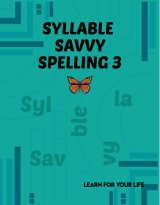When to Report Bullying
To tell or not to tell? Generally, yes. However, you should have a step-by-step plan before your inform your child's leader or teacher of the bullying.
The Need to Report
More often than not, children and even adults who are bullied are afraid to tell. In fact, as a parent, you may be intimidated to talk about it. And sometimes, the fear of retaliation is not unfounded.We will discuss some strategies for dealing with bullying and ostracization. Depending on your situation you may want to try these strategies before talking to authorities. However, if they do not work, be quick to bring the correct authorities in quickly.
Reporting to A School Teacher
In most cases, bullying takes place at school and the obvious person to tell is the teacher. Often teachers have handled the situation very effectively and the negative behavior was shut down immediately. There are other situations where the opposite happened: the teacher made it worse. In a few of the worse situations, the teacher was the bully.In all cases, you must start by telling the teacher. You and your child should discuss who should tell: you or the child. Their opinion should weigh very heavily on this decision. Be prepared and willing to do the explaining if they prefer.
This step is very important: even if it is not effective. Please, please keep in mind that if the situation gets worse, you will need to go higher in the authority structure. For kids in a school situation this often means teacher, principal, superintendant, police. Yes, some situations do get to the point of needing the police. The first thing they will ask you is: "Did you tell the teacher?" If you say no, your case will be much weaker.
If you have reason to be afraid to talk to the teacher (or boss, or leader, etc. etc.) it is important to lay out mentally the order of who you will talk to if you are not able to solve it with the first conversation. You also need to be prepared to move quickly to the next level if you fear a negative reaction at the beginning.
Of course, you also need to plan out what you are going to say. The best thing to do is to have an unemotional explanation (yes, I know this is hard) that gives the facts. Remember the W's:
- Who
- What happened
- When and Where
Recognize in advance that this (hopefully) may be the only step you have to take. However, realistically, it may not be for the two reasons discussed below:
- The teacher is not effective in dealing with bullying
- The teacher is involved in the bullying
Teacher Ineffective In Dealing with Bullying
Teachers are people. Like you and me, they do not come pre-equiped in life to handle all controversies and challenges.A teacher may be effective in teaching, and be totally ineffective at dealing with this. Of course, when you are in a situation where your child is bullied, an ineffective teacher is - for you now - a bad teacher. Even if they aren't a bad person or a bad teacher, their ineffectiveness at dealing with your need at this time is going to a problem.
If you don't trust the teacher or leader to be effective, it is possible you might want to give a less explicit explanation to them. For instance, "Hey, Mrs. Smith, I just wanted to bring to your attention a few concerns I've had. Sally has mentioned to me that she has been pushed around on the playground the last few days by a couple of the boys. Have you been aware of any such occurences?"
With this downplayed explanation, you are giving Mrs. Smith a chance to rise up and deal with the situation appropriately. You have not put everything on the line and taken her into your confidence because you don't, in fact, trust her. You are prepared to take it to the next level of authority as soon as you may need to, and will be able to effectively say that on such and such a date you informed Mrs. Smith that your daughter was being pushed on the playground and the result of that conversation.
Teachers Who Bully
Yes it happens. It happens in public school, private school, Sunday School, and clubs of every kind.The teacher is the bully. Possibly the teacher was a bully as a child and has never outgrown it. Even if he or she is not the central bully, they can become the minion that empowers the others to inflict harm.
If this is the case, you have no honest way of dealing with the situation but to remove your child from harm;s way. You probably will not recognize the teacher as the bully at the beginning, so go through the proper steps. Tell the teacher, tell the principal, etc. But somewhere, along the way, if the teacher is implicitly or explicitly involved in the bullying, it will become obvious.
Remove your child immediately. At the same time, by properly informing first the teacher then the person above the teacher, you have possibile created the first documentation of what is going on which will eventually lead to the teacher's retraining (hopefully retraining by dismissal.)
Reporting At A Higher Level
After talking to the teacher or group leader, the next step is to speak to the principal or administrator of the program. As mentioned before, their first question is often, "Have you told the teacher." Document your conversations with teachers, counselors, principals, anyone you speak to.Police
If the bullying involves physical force or THREAT of physical force, it is appropriate to tell the police. Again, they may want to know if you talked to the school or group administrators.Anytime there is fear of the child's safety, it is appropriate to go to law enforcement first and immediately. If you feel the danger is minimal, it may be appropriate to go to school or program administrators first. However, if problems of physical abuse are not resolved immmediately, then the offenses should be reported to the legal authorities.
Dealing with the Other Parents
Should you talk to the parents of the kids doing the bullying? This can be a touchy situation, so you will need to consider different factors.School Bullying
Generally, schools prefer you contact the teacher or principal, and leave it to them to contact the other parents as need be. Particularly if you do not know the other parents, this may be wise.Parents as Friends
This is a tricky situation: when the parents of the bully and the bullied child are friends. I have been in this situation several times, and have observed it with other families as well.Sometimes the bullying takes place during play dates, and doesn't involve school or formal activity bullying: it is just your child and your friend's child. Your choices are to:
- Have an open discussion with the parent
- Arrange time with your friend without the kids
- End the friendship, if the bullying is not stopped
- Allow your child to continue to be bullied
If you chose to remain friends, but wish to shield your child, you may simply state: "It seems the two of them haven't been getting along lately. I think they need a break from each other." That's about as gentle as you can be. If they don't accept it, terminating the friendship with the other parent may be your only option.
Other Parents are Relatives
This starts to get even more complicated; because you can change who you are friends with, but you can't change who you are related to. And when you add in-laws, and step-children, and other family members you can get into some real complex situations that can affect others as well.But like parents who are friends with the bully's parents, parents who are related to the bully's family CAN determine how much contact the two can have. Are holidays a time of torment for your child? You can chose to have your holidays away from relatives or make other plans for the affected child. Protecting your child is a primary responsibility - more than spending holidays with your relatives.
Defensive Parents
When kids are at fault, there's always someone willing to blame parents. I'm not into bashing parents for every fault their kids have. But with bullying, sometimes the shoe fits.There are mothers who want their child to be the most popular. These mothers are highly competitive bullies themself who instill that value system in their kids. The behavior of the mother may be as simple as denying the bullying exists, or they may go to great lengths to eliminate any competition for their kids.
In this scenario, you need to protect your child from the bully and the bully's parent(s). If physical aggression is involved, definitely seek legal protection.
Have you had success in reporting bullying? Found difficulties that others may be able to discuss with you?
Other Articles In This Series
Main Page: DEALING WITH BULLYING- What is bullying? Compare rejection, ostracization, and bullying.
- Why Is MY child shunned? Reasons some children are singled out.
- Teach your child how to deal with a bully.
- Teach your child how to deal with ostracization and emotional bullies.>.
- Should you homeschool if your child has been bullied.
- Healing After Bullying: Helping Your Child Rebuild Confidence
About Our Site
Hands-On Learning













New! Comments
Share your feedback with the rest of the home school community.